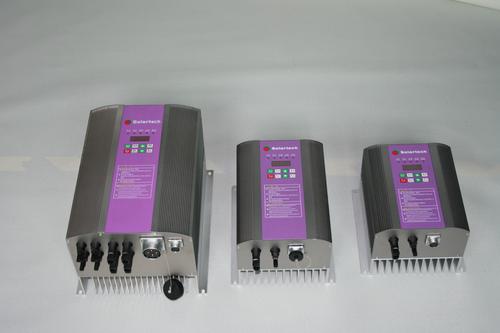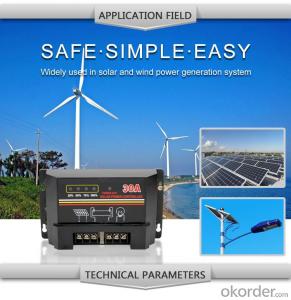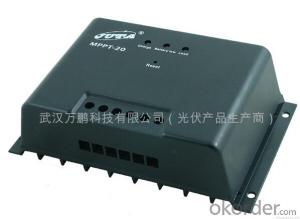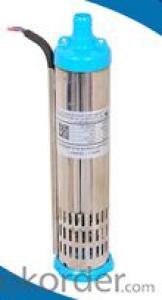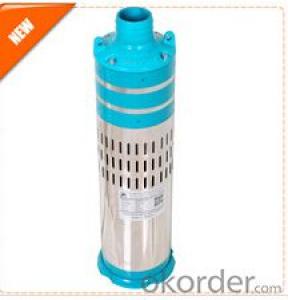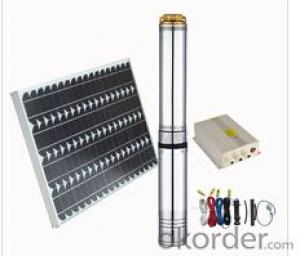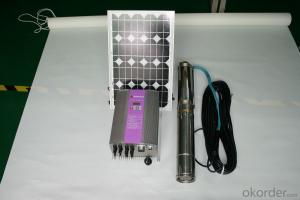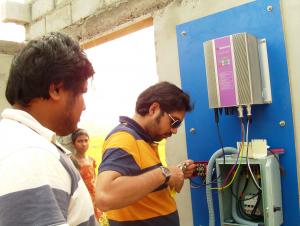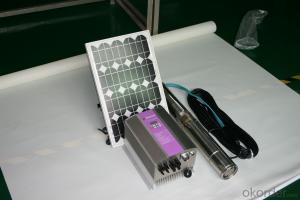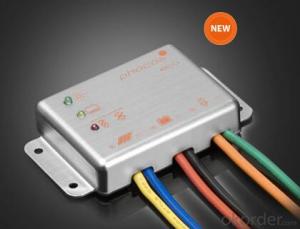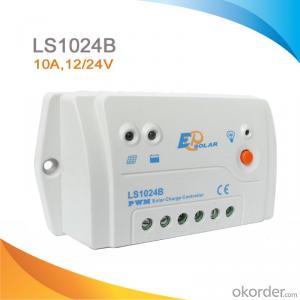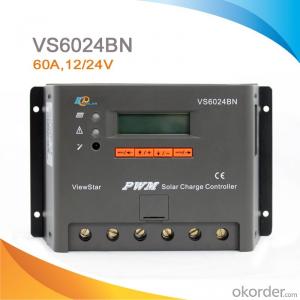Solar Water Pump Controller for Solar System
- Loading Port:
- Shekou
- Payment Terms:
- TT OR LC
- Min Order Qty:
- 20 unit
- Supply Capability:
- 800000 unit/month
OKorder Service Pledge
OKorder Financial Service
You Might Also Like
Products
Solar Pumping System can be applied to daily use (ground water), agricultural irrigation, forestry irrigation, desert control, pasture animal husbandry, water supply for islands, wastewater treatment engineering, and so on. Solar water pump System is dispensed with energy storing devices, and stores water instead of electricity. It improves the reliability of the device, at the same time, it lowers the construction and maintenance costs of the irrigation system dramatically.
In recent years, with the promotion of the utilization of new energy resources, Solar Pumping System is more and more used in municipal engineering, city centre squares, parks, tourist sites, resorts and hotels, the landscapes and fountain irrigation systems in the residential areas.
Technical Features
Optimization of Single Pump System
A single solar irrigation system consists of only one pump, a power -matched solar array and an inverter . The aim of optimization is to reduce the amount of PV modules as much as possible on the premise of filling the requirement of head and capacity. The rotational speed of pump is regulated according to the irradiation on the solar array; when the sunlight reaches its peak, the pump runs at the rated speed, and the output approaches the peak power of the solar array; when the sunlight is less abundant, the speed of pump varies bellow the range of the rated speed; when the speed as low as the capacity becomes zero, the solar pumping system stops working. So, there are big differences between solar irriation systems and traditional pumping systems in system design, and the system should be optimized according to the requirements of head, capacity, and local conditions of sunlight.
•Determine the optimal average daily operating time and the range of speed governing.
•Choose the optimal head and capacity of the pump.
•Determine the maximum power of PV modules, the best working voltage and method of connection.
Optimization of Multi-pump Systems:
There are several pumps in a multi-pump system. The pumps can be driven either by only one high-power inverter, or by several matching inverters. In the case of large capacity demand, the operation of the multi-pump system is more flexible. By switching solar arrays and pumps, all of the pumps run in MPPT mode when the sunlight is abundant, while some pumps will be shut down and all solar arrays supply power intensively for the rest running pumps when irradiation is weak. Based on the optimization of single pump system, the range of speed can be further optimized, and the photovoltaic(PV) pumping system always works with high efficiency.
Product Specifications
Model | Rated Power ( kW ) | Rated Voltage ( V ) | Head ( M ) | Daily Flow ( ㎥/ D ) |
PS370 | 0.37 | 220 | 20-47 | 20-1 |
PS550 | 0.55 | 220 | 15-70 | 40-1 |
PS750 | 0.75 | 220 | 6-81 | 100-1 |
PS1100 | 1.1 | 220 | 8-93 | 100-1 |
PS1500 | 1.5 | 220 | 7-128 | 130-1 |
PS2200 | 2.2 | 380 | 12-163 | 130-1 |
PS3000 | 3 | 380 | 9-187 | 250-10 |
PS4000 | 4 | 380 | 6-225 | 500-10 |
PS5500 | 5.5 | 380 | 10-172 | 500-20 |
PS7500 | 7.5 | 380 | 15-237 | 500-20 |
PS9200 | 9.2 | 380 | 20-140 | 500-40 |
PS11000 | 11 | 380 | 23-159 | 500-40 |
PS13000 | 13 | 380 | 27-189 | 500-40 |
PS15000 | 15 | 380 | 31-208 | 500-40 |
PS18500 | 18.5 | 380 | 39-143 | 500-100 |
PS22000 | 22 | 380 | 25-86 | 700-210 |
PS26000 | 26 | 380 | 30-105 | 700-210 |
PS30000 | 30 | 380 | 35-125 | 700-210 |
PS37000 | 37 | 380 | 40-150 | 700-210 |
PS45000 | 45 | 380 | 50-180 | 700-210 |
PS55000 | 55 | 380 | 65-200 | 700-210 |
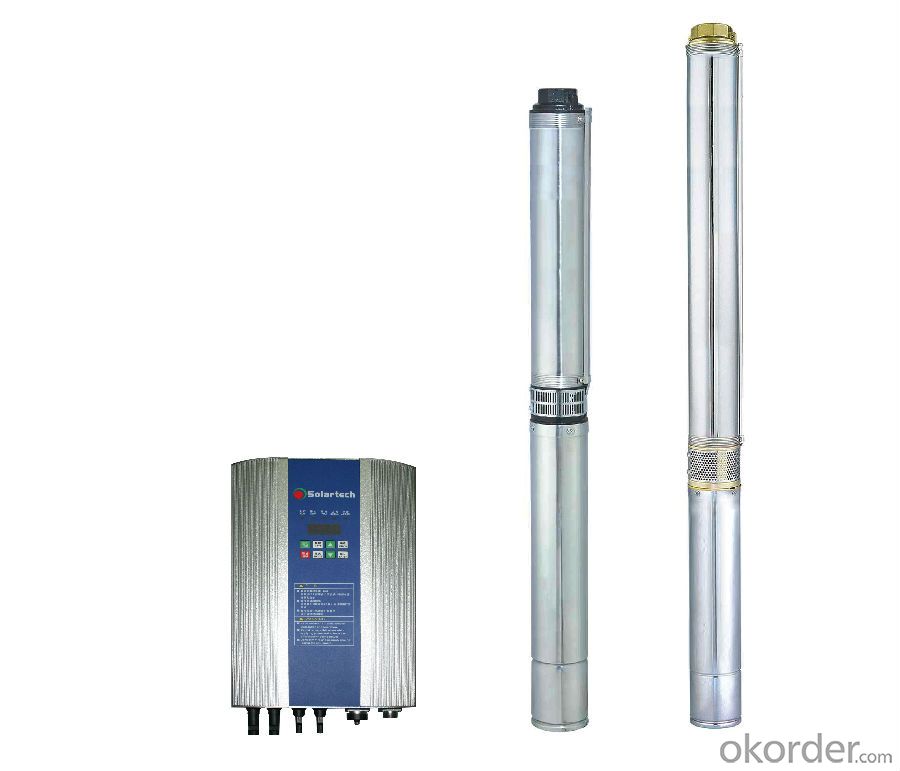
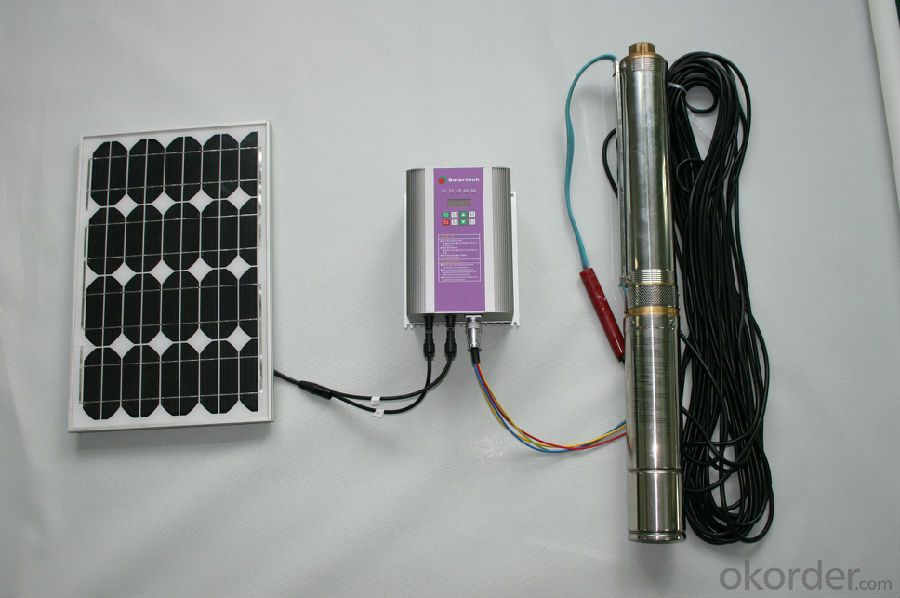
- Q: Can a solar controller be used with different types of solar panel backup systems?
- Different types of solar panel backup systems can be used with a solar controller. The purpose of a solar controller is to regulate the electricity flow from solar panels to the backup system. This ensures proper battery charging and prevents overcharging or system damage. Solar controllers are generally compatible with various solar panel backup systems, including off-grid, grid-tied with battery backup, and hybrid systems. However, it is crucial to select a solar controller that matches the voltage and current requirements of the chosen backup system. This ensures safety and optimal performance.
- Q: Can a solar controller be used with a solar-powered wireless communication system?
- A solar-powered wireless communication system can certainly utilize a solar controller. The role of a solar controller is to regulate the power output from solar panels, ensuring effective battery charging and safeguarding against overcharging. In the context of a solar-powered wireless communication system, the solar controller plays a vital role in power supply management for communication devices. By linking the solar panels to the solar controller, the charging process can be optimized through voltage and current adjustments tailored to the battery's requirements. This optimization enhances solar panel efficiency and guarantees proper battery charging. Furthermore, a solar controller offers essential safety features, such as preventing battery or communication system damage caused by overcharging. It also safeguards against reverse current flow, which may occur during low sunlight periods or at night when solar panels are inactive. In summary, a solar controller is an indispensable element for any solar-powered system, including wireless communication systems. It facilitates efficient power management, extends battery lifespan, and ensures reliable communication in remote or off-grid locations.
- Q: Can a solar controller be used with solar panel ground mounts?
- Yes, a solar controller can be used with solar panel ground mounts. A solar controller is responsible for regulating the charge to the battery bank and preventing overcharging or over-discharging. It is independent of the mounting system, whether it is a ground mount or a rooftop installation. The solar controller's primary function is to manage the power output from the solar panels, ensuring optimal performance and protection for the battery system.
- Q: Can a solar controller be used with a solar-powered fish farm?
- Yes, a solar controller can be used with a solar-powered fish farm. A solar controller regulates the amount of power flowing from the solar panels to the fish farm's electrical system, ensuring optimal performance and preventing overcharging or undercharging of batteries. By using a solar controller, the solar power generated can be efficiently utilized to power the various components of the fish farm, contributing to its sustainable and eco-friendly operation.
- Q: How does a solar controller prevent overloading of the solar panel system?
- Preventing overload in the solar panel system is a crucial function of the solar controller, also known as the charge controller. It ensures that the energy produced by the solar panels is utilized effectively, without causing any harm to the system. To prevent overload, the solar controller constantly monitors the voltage and current levels of the solar panels. It compares the input from the panels with the system's capacity. If the input exceeds the maximum capacity, the controller takes necessary action to prevent overload. There are various techniques employed by the solar controller to prevent overload. One common method is pulse width modulation (PWM). PWM controllers effectively regulate the flow of energy by quickly switching the input current on and off. By controlling the duration of each pulse, the controller ensures that the energy delivered to the system matches the demand, thus preventing overload. Another technique used by solar controllers is maximum power point tracking (MPPT). MPPT controllers optimize the efficiency of the solar panel system by identifying the point at which the panels generate the maximum power output. By continuously adjusting the input voltage and current, the controller ensures that the system operates at its peak performance, effectively preventing overload. Furthermore, solar controllers often incorporate safety features like short-circuit protection and overload protection. These features detect and respond to abnormal situations, such as sudden voltage surges or excessive current, by temporarily shutting down the system or directing the excess energy elsewhere. This ensures the protection of the panels and other components from damage. In conclusion, the solar controller plays a crucial role in preventing overload in the solar panel system. It monitors voltage and current levels, utilizes techniques like PWM and MPPT to regulate energy flow, and incorporates safety features to protect against abnormal situations. Its significance lies in maintaining the efficiency and lifespan of the solar power system.
- Q: Can a solar controller be used with solar panel shading analysis systems?
- No, a solar controller cannot be used with solar panel shading analysis systems. A solar controller is used to regulate and optimize the charging of batteries in a solar power system and does not have the capability to analyze shading on solar panels. Shading analysis systems are specifically designed to assess the impact of shading on solar panels and determine the optimal placement and orientation of the panels for maximum energy production.
- Q: Can a solar controller be used with a solar-powered outdoor Wi-Fi system?
- A solar-powered outdoor Wi-Fi system can indeed utilize a solar controller. This device plays a crucial role in regulating the energy flow from the solar panels to the batteries, ensuring their proper and efficient charging. When it comes to a solar-powered outdoor Wi-Fi system, the solar controller takes on the responsibility of managing the energy supply, ensuring that the batteries are charged throughout the daylight hours and enabling the system to function even in the absence of sunlight. This capability empowers the Wi-Fi system to operate continuously, even in remote or off-grid areas where conventional power sources may not be accessible. By incorporating a solar controller into a solar-powered outdoor Wi-Fi system, it becomes feasible to harness the sun's power to offer reliable and sustainable connectivity.
- Q: Can a solar controller be used with solar panels that are not facing directly towards the sun?
- Yes, a solar controller can be used with solar panels that are not facing directly towards the sun. Solar controllers regulate the flow of electricity between the solar panels and the battery, ensuring efficient charging. While solar panels perform best when facing directly towards the sun, they can still generate some electricity even when not perfectly aligned. The solar controller helps optimize the charging process, ensuring that the available sunlight is maximized and the batteries are charged as efficiently as possible.
- Q: How does a solar controller prevent overvoltage damage to the batteries?
- A solar controller prevents overvoltage damage to the batteries by continuously monitoring the voltage levels from the solar panels. When the voltage exceeds a certain threshold, the controller regulates the charging process by either reducing the charging current or temporarily disconnecting the panels from the batteries. This ensures that the batteries are not subjected to excessive voltage, protecting them from potential damage.
- Q: How do I prevent overcharging of batteries with a solar controller?
- To avoid batteries being overcharged by a solar controller, there are several important measures you can take: 1. Select an appropriate solar controller: Ensure that the solar controller you choose is specifically designed to prevent overcharging. Look for controllers that have advanced features such as Maximum Power Point Tracking (MPPT) or Pulse Width Modulation (PWM) technology, as these can effectively regulate the charging process. 2. Adjust the charging parameters correctly: Most solar controllers allow you to customize the charging parameters, including voltage setpoints and charging modes. It is crucial to understand the recommended charging parameters for your specific type of battery and adjust the settings accordingly. Consult the battery manufacturer's specifications or seek professional advice to determine the appropriate settings for your battery. 3. Utilize temperature compensation: Batteries are sensitive to temperature changes, and the charging process should be adapted accordingly. Some solar controllers offer temperature compensation features that automatically adjust the charging voltage based on the battery's temperature. This feature is particularly useful in preventing overcharging during extreme weather conditions, such as hot summers or cold winters. 4. Install a battery temperature sensor: If your solar controller does not come with built-in temperature compensation, you can install a battery temperature sensor. This sensor measures the battery's temperature and relays the data to the solar controller, allowing it to adjust the charging parameters accordingly. 5. Regularly monitor the charging process: Keep a close eye on the charging status of your batteries. Many solar controllers come equipped with display screens or monitoring interfaces that provide real-time information about the charging process. Monitoring the voltage, current, and battery temperature will enable you to identify any potential issues and take corrective actions when necessary. 6. Implement a multi-stage charging process: Instead of consistently applying a high charging voltage, consider employing a multi-stage charging process. This involves initially providing a higher voltage to rapidly charge the battery, and then automatically switching to a lower voltage once the battery reaches a certain level. This method helps prevent overcharging and extends the lifespan of the battery. By following these steps and proactively monitoring and adjusting the charging process, you can effectively prevent batteries from being overcharged by a solar controller. This ensures optimal performance and longevity of your battery system.
Send your message to us
Solar Water Pump Controller for Solar System
- Loading Port:
- Shekou
- Payment Terms:
- TT OR LC
- Min Order Qty:
- 20 unit
- Supply Capability:
- 800000 unit/month
OKorder Service Pledge
OKorder Financial Service
Similar products
Hot products
Hot Searches
Related keywords






